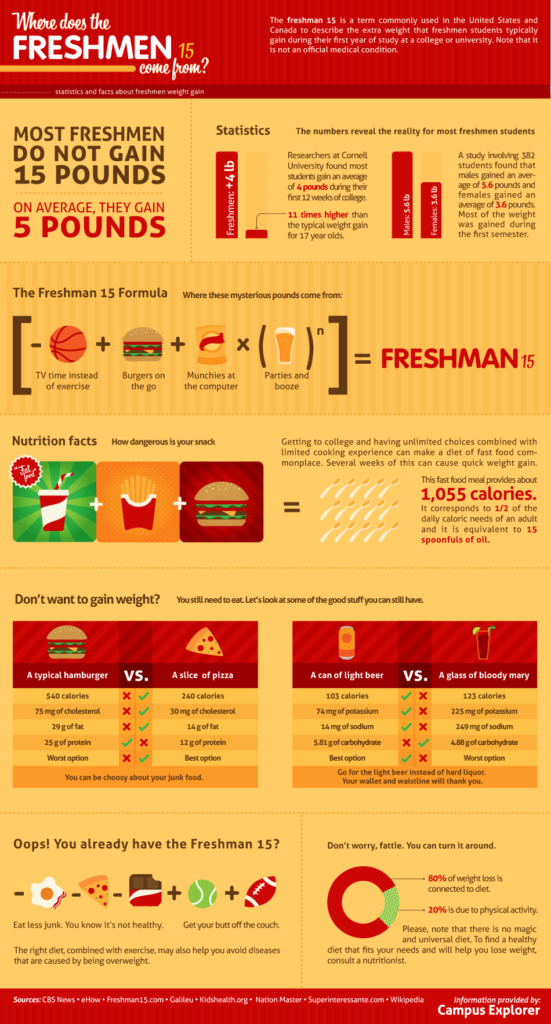by The Cowl Editor on November 15, 2018
Uncategorized

by Angela Bueso ’22
Opinion Staff
When you hear stories and warnings of it back home, you think you are immune to it, that it will not happen to you.
Nevertheless, for many people, gaining a few pounds their first year of college is inevitable.
The change of environment, combined with the stress and late-night snacking, is the perfect formula for gaining weight.
People act as if the “Freshman 15” is not normal, as if they are the only one that have gained weight.
However, this is not the case; according to WebMD, one in four college students gain weight during their first year.
If this is so common, then why do people still act surprised when it happens and belittle those who struggle with it?
This behavior is the result of the borderline irrational obsession that society has with body image, yet another unrealistic and unattainable expectation.
Society cannot expect individuals, especially students, to live up to such perfect standards. We are humans, not robots.
People should not hope to have bodies like Instagram models, or athletes whose jobs consist of spending hours at the gym and taking care of their bodies.
This pressure is not only set forth by society and people close to us, but is also reinforced by ourselves.
We truly are our harshest critics. Because we know our bodies better than anyone, calling someone “fat” or “overweight” is not only cruel but pointless. We cannot control what others do, and there is no reason for us to make comments on someone else’s health.
We look at ourselves in the mirror every day, we know how clothes fit us when we have attained a few pounds.
Moreover, if we have gained weight, we already know it, and it is probably something we are struggling with.
Someone telling us what we already know, and something that we are insecure about does not make the situation any better.
This pressure makes you feel uncomfortable, and like you have to do something drastic in order to go back to your normal weight.
This obsession with losing weight, combined with the stress of college, and the change in environment can have many repercussions—from binge eating and anorexia, to bulimia and depression.
To those who have seen their bodies change during the first semester of college: embrace it.
Yes, the free food at most on-campus events does not help this situation, and maybe eating Take3 in Alumni every day is not the healthiest decision.
But people do not know what stresses have contributed to your eating habits, nor do they know the lack of healthy options at our school.
As sad as this sounds, college students are busy, and caring for their health is not always their top priority.
Furthermore, they eat when they get a chance and try to choose the most appealing food options; which sometimes are not the healthiest ones. We need to take steps to fix this.
Instead of fat-shaming, family, friends, and society as a whole should lower the pressure they put on young people to always look their best.
This social pressure is reinforced through social media, as every time you open Instagram you see the perfect bodies of the Victoria’s Secret Angels, or the muscles of NFL players.
College students are going through enough already, the last thing they need is the people who they love the most criticizing their physical appearances.